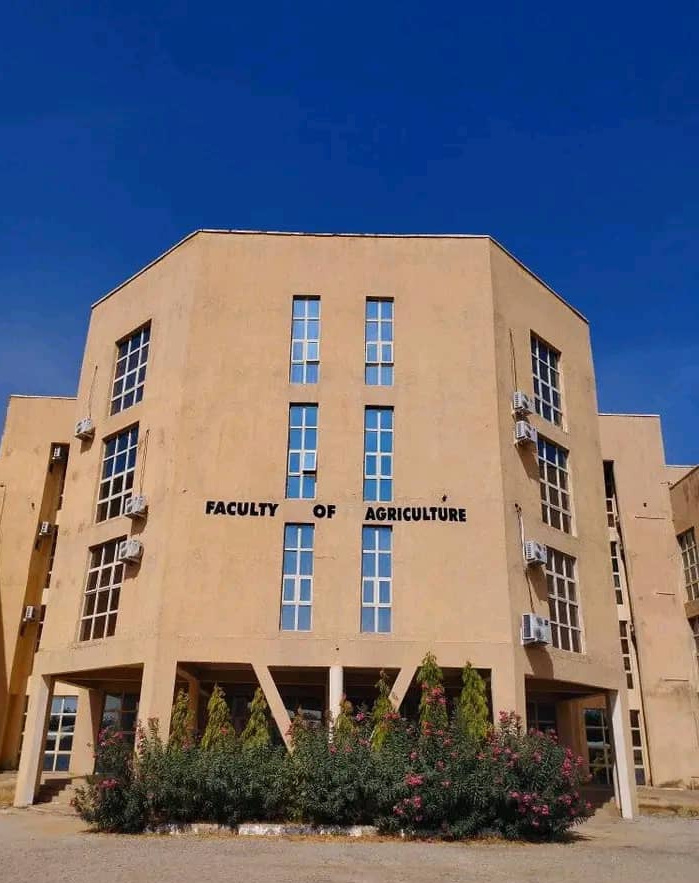By: Abdulrasheed Aishah
When the Student Industrial Work Experience Scheme (SIWES) period approached, many students heaved a sigh of relief, not because they were eager to leave the classroom, but because it offered an escape from the endless stress of campus life.
“I think doing SIWES at our various places is fair enough because the stress was too much to bear,” said one of the participants.
“You will start thinking, is it what you will eat before going or when you return from the SIWES centre? That stress is completely gone when you are at home,”he added.
For most students, the thought of juggling lectures, accommodation issues, and campus heat during SIWES felt like an unnecessary burden. At home, they say, there’s room to rest, refocus, and learn more effectively.
Muhammad Tohir, a 400-level student from the Department of Agriculture, shared his own experience while participating in the scheme at a veterinary clinic. “When they oriented us, they talked about punctuality and seriousness. You must not come late, and they don’t tolerate nonsense. All the doctors there, Dr. Balarebe, Dr. Aliyu, and Dr. Marijanatu, were very active and supportive. They explained many things to us in detail,”he recalled.
Tohir said the hands-on experience in the clinic was invaluable. He and his colleagues participated in operations at the theatre, learned how to prescribe drugs, and recorded medical observations.
“It really helped us gain basic practical knowledge,”he said. “But honestly, if I had the chance to choose again, I would prefer doing it at home. Apart from SIWES, there is no other academic activity during the first semester, so it’s better to be comfortable.”
However, Tohir also pointed out a potential challenge with the idea of doing SIWES from home, noting that the problem it can cause is with the logbook, he explained that if students do SIWES at school, they will always have access to it whenever they need it, but at home, it can be a bit difficult. Still, that can be resolved if the management in charge allows students to do it officially at home.
“After all, some students in departments like Biochemistry, Physics, and Fisheries are doing their SIWES at home without any problem with their logbook, I think ours can also be handled that way”
SIWES Gives Knowledge to Share
Another 400-level student of Agriculture, Muhammad Muhsin Kurya of Usmanu Danfodiyo University shared a similar view, emphasising the lasting value of the SIWES experience.
“Yes, SIWES has no unit, but without a doubt, what you learn there is yours, no one will take your knowledge away from you,” Kurya said.
“When you return from SIWES, you will have insightful discussions with your friends and share your experience, since not everyone works in the same place.”
Kurya, who used his experience to advise the upcoming practical-year students, stressed that the place of industrial training doesn’t define the quality of Learning, commitment does. He went on to guide future participants based on areas of specialisation, noting that anyone going into Animal science, may want to do SIWES at veterinary clinic or Poultry farm, likewise, someone focusing on crop science can go to manufacturing company like Rice Mills.
Kurya further said, students choose their desired department at 500 level, so wherever students do their SIWES doesn’t matter much. At 400 level, students will still do practicals in all the core areas, Soil Science, Crop Science, Animal Science, Agricultural Extension, and Agricultural Economics.
“Before choosing a place of Industrial Training (IT), ask yourself: what am I going there to learn? What matters most is dedication and learning something meaningful.” He nailed it.
On the debate between doing SIWES at school or at various home locations, Kurya noted both benefits and drawbacks.
“The advantage of doing it at school is that you will have more time for it, and you won’t be distracted by household responsibilities, but the disadvantage is feeding, it is always a big challenge” he said.
Otene Joyce, a 300-level student from the Department of Agriculture, believes students should be allowed to do SIWES in different locations rather than being restricted to a few. She explained that such flexibility would allow students to experience Agriculture in diverse environments and learn beyond the limits of their immediate surroundings.
According to her, students in the North face limited access to certain agricultural resources. Exploring other regions would help them understand new breeds of livestock, different species of plants, and various methods of agricultural management.
Joyce emphasized that practical exposure is essential for real understanding, adding that “going out is part of education, seeing is believing.”
She also pointed out that practical experience complements classroom learning, while theories provide a foundation, observing and handling real situations, she said, helps students truly grasp the differences between plant and animal species and how they are managed.
Meanwhile, Tohir, who carried out his SIWES at a veterinary clinic shared one of his challenges during the exercise, the language barrier. He recalled a day when a client brought an animal for treatment but spoke only Hausa, a language he didn’t understand. “I told him, ‘Ba Hausa, speak English.’ Meaning I don’t understand Hausa. “ Tohir recounted. “He couldn’t respond, so another person later attended to him. “
Students’ Coordinator Support SIWES Flexibility– Call for E-Supervision
As part of efforts to understand students’ opinions on the ongoing student Industrial Work Experience Scheme (SIWES), Pen Press UDUS conducted a mini survey across the Faculty of Agriculture.
Although many students did not respond, 13 participants filled out the form. Out of this number, 11 students supported the ideas of carrying out SIWES at their various chosen places, citing reasons such as economic stability, access to better facilities, and standardization of workplaces. Only two students disagree, noting that they preferred the convenience of doing it within the school environment.
In an interview with Mallam A. A. Sheriff, one of the SIWES coordinators from the Department of Soil Science, expressed his support for allowing students to undergo their training in different locations.
He explained that although SIWES carries no credit unit, it remains a compulsory part of the academic programme. “If you think it is a zero-unit course and you do not do it, you are going to carry it over,”He said.
Mallam Sheriff also disclosed that a recent departmental conference restricted SIWES placements to the North-West region, specifically Sokoto, Kebbi, and Kaduna States, while Zamfara was excluded due to insecurity challenges. “We try to persuade our bosses to consider extending it again,” he added.
He further revealed that the department is proposing an E-service system in collaboration with the Industrial Training Fund (ITF), which would allow supervisors to monitor students online. According to him, the move aims to reduce cost, risk, and stress involved in field supervision.
“With E-Supervision, students can be monitored online,” he said. “If a student is not present on the day of supervision, they will repeat the practical year automatically. It saves time, money, and even the lives of lecturers who travel long distances for supervision.”
Mallam Sheriff noted that the current system is financially demanding, pointing out that some professors receive as little token for supervising students across multiple states. He added that with the online model, the only recurring cost would be internet data for consistent monitoring.

